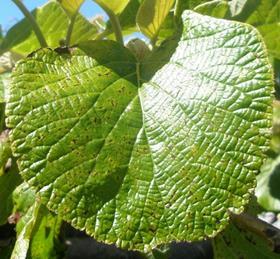
Research undertaken at New Zealand’s Otago University suggests the bacterial disease Psa-V, which is affecting the country’s kiwifruit industry, originated in China.
Scientists at the university’s biochemistry department found significant similarities between genomes from Chinese Psa strains and those discovered last year in New Zealand.
According to a report in Business Day, the research was commissioned by New Zealand’s largest kiwifruit packers, Seeka and EastPack.
A report from the university department found it was likely the disease did not originate from Italy but from China or “via an unknown intermediate”.
The Business Day article stated the findings of the report were at odds with a Ministry of Agriculture and Forestry (MAF) tracking report that made little mention of China as a possible origin of the disease.
Seeka chief executive Michael Franks told the newspaper MAF’s failure to list China as a possible source of the disease was “a glaring omission”.
MAF’s director-general Paul Stocks, however, told the newspaper the Otago University report was not inconsistent with the MAF tracking report, which highlighted China as a possible source of the disease. He said the ministry “simply didn’t have any information from China”.
Franks believes MAF needs to undertake more analysis into what possible vectors for the disease, such as pollen and plant material, had entered the country from China.
The Otago University report stated genome sequencing data suggested the import of pollen, plant material, bacterial cultures for research, or fruit from Italy were not the cause of the outbreak in New Zealand.
'Similarly NZ-Psa carried on plant material or fruit was not the origin of the Italian outbreak,' the report said.



